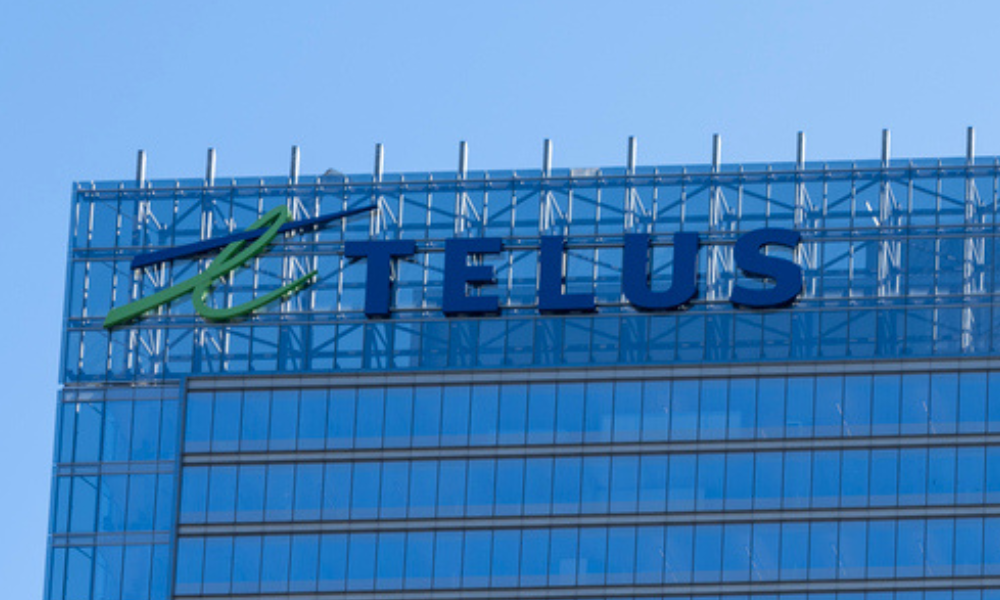Managing director of employer solutions explains how his company earned NelsonHall recognition, what they’re focused on now

TELUS Health looks at the whole picture in benefits provision. A tech-driven company with scale across a range of health and wellness benefit subsectors, they have managed to adapt rapidly to a world where benefits provision is increasingly online and benefits needs are increasingly acute. That adaptation was recognized in February when TELUS Health was named an overall leader for next-generation benefits administration in both Canada and the United States by global analyst firm NelsonHall.
Neil King, managing director of employer solutions at TELUS Health, praised his team’s work and dedication in earning this recognition. Rather than resting on his laurels, though, King positioned the recognition as a foundation, something he and his team can keep building on as they work to meet the stresses employees now feel. The approach he advocates for is aimed at tackling the root of employee stress with an approach that integrates benefits and pensions.
“Canadians and Americans are really struggling with inflation. In Canada, on the question of retirement, the National Institute of Aging says that 40 per cent of Canadians over 50 feel that they’re not financially prepared for retirement. You’ve got inflation, you’ve got rising cost of living, and this is having an impact on people’s overall health.” King says. “What TELUS Health has done is we have put together a next generation benefits and pension administration platform that can integrate pensions and benefits.”
King emphasizes the need for this integrated approach, citing studies which have shown that financial stress can cause a range of poor physical and mental health outcomes. Those range from anxiety to gastrointestinal issues, to migraines and lower back pain. He sees an integrated solution as key because people don’t come to their benefits providers with a single problem. They face myriad challenges that compound on one another, so being able to address that whole range of challenges in one place can make a plan sponsor’s work that much simpler.
Key to that integrated platform, in King’s view, is that employees are given easy access to information. Many of the acute stresses King mentioned come from a lack of information. Young employees, who might be dealing with the stressful prospect of buying a home in today’s market, may have no idea about their potential retirement benefits and what they mean. Through support and information that they can receive on platforms like TELUS Health’s, King believes they can get a clearer idea of what their future may look like and how they can get there.
Self-service tools must play a role in disseminating that information. That includes using AI chat bots and simple dashboards that employees can access 24/7. These tools can allow employees to very quickly understand how their changing circumstances — such as having a child — impacts their benefits.
“Knowledge is power, and having a clear line of visibility that combines digital and live support that’s unique to the individual provides a strong employee experience,” King says. “If you have a really good employee experience, even if you’re using an outside vendor, it reflects back positively on the organization.”
King acknowledges that any integration of AI tools can’t come at the expense of the important pieces of human connection that employees need from their benefits provider. He sees AI tools as a useful way to automate the mundane, repetitive tasks involved in benefits administration. AI can also give employees quick access to the information they need most, which can make employees feel empowered and informed. That also means human resources are freed up to help employees with acute needs, those going through major life changes or preparing for retirement.
King reemphasized that the plan at TELUS Health is to keep advancing these tools. He says that the company wants to build more personalized data tools that can bring in past decisions to help employees and their benefits providers make informed future decisions. That means live representatives will also have easier access to the context and relevant information that they need.
“Serving up innovation around a personalized experience is always going to be meaningful, and there's always room for us to improve there,” King says. “But we're also making sure that we invest in technology so that we have tools on the background so that when employees do need to speak with a live representative, they've got very efficient tools, they've got information at their fingertips so that they can have a meaningful conversation with that member at that point.”



